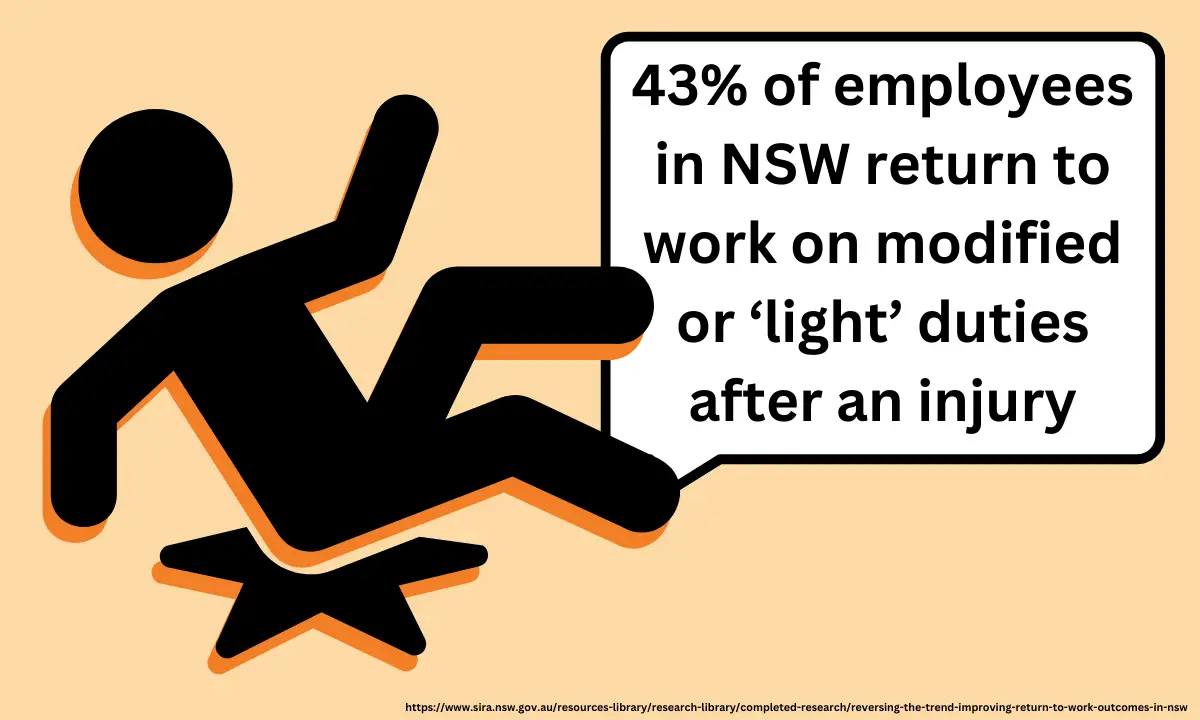Employer negligence can lead to significant injuries and financial losses for workers. If you’ve suffered due to your employer’s failure to provide a safe work environment, you may be eligible for compensation under common law negligence. These claims often result in substantial lawsuit settlements, helping injured employees recover damages for medical expenses, lost wages, and pain and suffering.
Understanding how common law negligence applies to employer-related cases is essential for pursuing justice. In this guide, we’ll break down the process of filing a claim, settlement expectations, and what you need to prove to succeed in your case. Let’s explore your rights and options to secure the compensation you deserve.
What Compensation Can You Claim for Employer Negligence?
Injured employees may be entitled to claim a range of benefits under employer negligence settlements, including weekly wages, medical expenses, rehabilitation costs, and travel expenses. Additionally, a lump sum payment may be available. Lump sum is payable in two forms:
- A permanent impairment payout applies if you have at least 11% whole person impairment (WPI). For psychological injuries, the payout requires at least 15% impairment.
- A common law payout for your physical or psychological injuries if either is at least 15% WPI.
To be successful in claiming a common law payout, an injured worker should prove:
- employer’s negligence in causing their injury and;
- injuries are already assessed as being at least 15% WPI

What is a Common Law Negligence Claim?

A common law negligence claim lets you receive a lump sum payment. This payment considers your future earning ability. It is an alternative to staying on workers’ compensation benefits.
It is made when your work-related injury is assessed as having at least 15% whole person impairment. This injury must have happened due to your employer’s negligence.
The type of injury does not affect common law negligence claims. You can make a common law negligence claim for both psychological and physical injuries.
Common law negligence claim settlements are determined according to past and future loss of earnings, calculated until retirement age. Once your common law negligence claim is resolved, all benefits you receive will stop. This includes weekly payments and expenses for medical care, hospital visits, transportation, and rehabilitation.
If your injuries are less than 21% WPI, your weekly benefits will stop after 5 years. This is true no matter your ability to work. This situation makes a common law negligence claim appealing to many people.
It’s a good idea to talk to our workers’ compensation lawyers before settling a common law negligence claim. They can provide valuable advice. They can help you understand your chances of getting a higher settlement and the effects of your settlement. In some cases it may be better for you to stay on workers compensation benefits instead of claiming a payout.
That is, of course, dependant on your unique circumstances and your WPI. This may be your first time claiming a payout. However, it is not the insurance company’s first time. Because of this, we suggest you get legal advice. This advice will not cost you anything out of pocket.
Am I Eligible to Make a Common Law Negligence Claim?
If your case fits the requirements below, you are more likely to be eligible to make a common law claim.
- Your work-related injury is assessed as being at least 15% whole person impairment, and
- Your work injury occurred because of your employer’s negligence, and
- You have received all statutory lump sum entitlements for permanent impairment to which you are entitled.
How Do I Prove Employer Negligence in My Claim?
In order to prove the negligence of another person or entity, you must be able to show that your employer:
- owed you a duty of care
- breached their duty of care and caused an injury
If you are not familiar with this field, you can reach out to our experienced common law lawyers.
Our lawyers hire experts based on your injury and how it happened. They will give an expert opinion on how your injury could have been prevented. This helps support your claim.
This is important because each area of work has its own policies, procedures, and requirements. These must be followed. If they are not, it can lead to negligence.

Steps to Making a Common Law Negligence Claim
If you have been planning to make a common law claim in NSW, this is a how-to-make-a-claim guide:
As mentioned above, firstly, you must meet the 15% whole person impairment threshold and make sure it is accepted by your insurer. If not, your injuries can be referred to the Personal Injury Comission for a binding determination by an Approved Medical Specialist.
Then, you are required to provide the employer and their insurer with relevant details of the claim for them to assess your full entitlement to the claim.
The points that you need to cover in detail include:
- Date of the injury
- Your pre-existing medical condition and current impairment rate
- Your previous injury claims (if any)
- Your economic loss due to the injury
- Negligence of your employer with evidence from experts
- The amount you are claiming and
- Any supporting documentation and information regarding your claim.

What Happens After Filing a Common Law Negligence Claim?
If the insurer accepts liability, they will make an offer of common law negligence settlement. Then, it will be your decision whether you want to accept or decline the offer.
If the insurer does not accept liability, the Defendant (the insurer/employer) will have 2 months from the date you provided particulars to make a determination.
Upon making determination you would then prepare and serve a Pre-Filing Statement setting out all the particulars of your evidence along with the evidence itself and a intended statement of claim which also sets out all the particularce including negligence claim.
The insurer/employer will then have 28 days to serve a Pre-Filing Defence setting out their defence as to liability, and their response and evidence that they will rely upon in defending their position.
You will then go to a Mediation. At this meeting, you, the insurer, and their lawyers can discuss a settlement. The settlement will depend on the strength of your claim. It will also rely on the evidence you provide about negligence. Additionally, your inability to work will be considered.
Should you and the insurer fail to resolve the matter by negotiation and you want to continue with your common law negligence claim then you should obtain legal advice about your reasonable prospects of success in commencing court proceedings.
What if I Don’t Get an Answer?
The Defendant (the insurer/employer) will have 2 months from the date you provided particulars to make a determination.
Upon making determination you would then prepare and serve a Pre-Filing Statement setting out all the particulars of your evidence along with the evidence itself and a intended statement of claim which also sets out all the particularce including negligence claim.
The insurer/employer will then have 28 days to serve a Pre-Filing Defence setting out their defence as to liability, and their response and evidence that they will rely upon in defending their position.

Will I Need to Go to Court for an Employer Negligence Lawsuit?
The short answer is, no – but it depends!
At mediation, the mediator helps the parties talk and reach a settlement. However, the mediator cannot make decisions or influence the outcome.
If you don’t accept the insurer’s settlement offer after mediation, you might have to go to court for your claim. You will have chances to resolve the issue before going to court.
However, you need to think about the strengths and weaknesses of your claim. Consider what options you have besides starting court proceedings. Also, weigh the benefits and risks of going to court.
If you are negotiating common law settlements with an insurer, it is important to get legal advice. Our experienced personal injury lawyer can help you understand your rights and receive your full entitlements.
Our lawyers will help you understand the strengths and weaknesses of your claim. They will also explain the insurer’s defense. This way, you can make a decision with peace of mind.
What Are Some Examples of Common Law Claims?
Workers from all industries can be entitled to make a common law claim as there is no limitation on a role, age or income amount.
According to SafeWork Australia, body stressing, falls, trips and slips, being hit by moving objects, mental stress, hitting objects with a part of the body, vehicle collisions and chemical substances account for the highest number of work-related serious claims.
Reach Our Common Law Lawyers For A Free Claim Check!
Our experienced personal injury lawyers have helped thousands of people in NSW on a No Win No Fee basis. We can help you get the best common law negligence settlement possible. Reach us for a free claim check!

Issa Rabaya
• Bachelor of Laws
• Graduate Diploma in Legal Practice
• Approved Legal Service Provider to the Independent Review Office
• Member of the Law Society

Issa Rabaya
• Bachelor of Laws
• Graduate Diploma in Legal Practice
• Approved Legal Service Provider to the Independent Review Office
• Member of the Law Society




